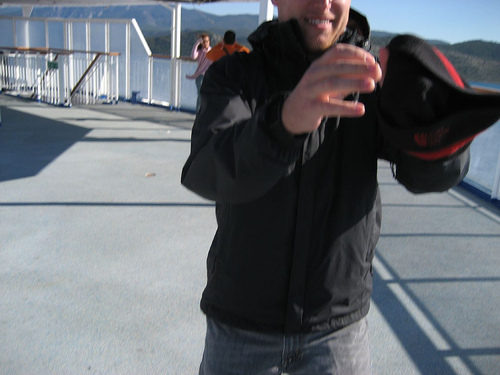¶ Lent.
Welcome deare feast of Lent: who loves not thee,
He loves not Temperance, or Authoritie,
But is compos'd of passion.
The Scriptures bid us fast; the Church sayes, now:
Give to thy Mother, what thou wouldst allow
To ev'ry Corporation.
The humble soul compos'd of love and fear
Begins at home, and layes the burden there,
When doctrines disagree.
He sayes, in things which use hath justly got,
I am a scandall to the Church, and not
The Church is so to me.
True Christians should be glad of an occasion
To use their temperance, seeking no evasion,
When good is seasonable;
Unlesse Authoritie, which should increase
The obligation in us, make it lesse,
And Power it self disable.
Besides the cleannesse of sweet abstinence,
Quick thoughts and motions at a small expense,
A face not fearing light:
Whereas in fulnesse there are sluttish fumes,
Sowre exhalations, and dishonest rheumes,
Revenging the delight.
Then those same pendant profits, which the spring
And Easter intimate, enlarge the thing,
And goodnesse of the deed.
Neither ought other mens abuse of Lent
Spoil the good use; lest by that argument
We forfeit all our Creed.
It 's true, we cannot reach Christ's fortieth day;
Yet to go part of that religious way,
Is better than to rest:
We cannot reach our Savior's purity;
Yet are bid, Be holy ev'n as he.
In both let 's do our best.
Who goeth in the way which Christ hath gone,
Is much more sure to meet with him, than one
That travelleth by-ways:
Perhaps my God, though he be far before,
May turn, and take me by the hand, and more
May strengthen my decays.
Yet Lord instruct us to improve our fast
By starving sin and taking such repast
As may our faults control:
That ev'ry man may revel at his door,
Not in his parlor; banqueting the poor,
And among those his soul.
-- George Herbert
Do you fast? Give me proof of it by your works.
If you see a poor man, take pity on him.
If you see a friend being honored, do not envy him.
Do not let only your mouth fast, but also the eye and the ear and the feet and the hands and all the members of our bodies.
Let the hands fast, by being free of avarice.
Let the feet fast, by ceasing to run after sin.
Let the eyes fast, by disciplining them not to glare at that which is sinful.
Let the ear fast, by not listening to evil talk and gossip.
Let the mouth fast from foul words and unjust criticism.
For what good is it if we abstain from birds and fishes, but bite and devour our brothers?
May HE who came to the world to save sinners strengthen us to complete the fast with humility, have mercy on us and save us.
-- John Chrysostom
I gave up alcohol for Lent. I've been observing Lent for a number of years now, and as a practice, I like it. It has helped me to, at least on a yearly basis, practice fasting in one sense or another. And while I would speak with a plank in my own eye - it seems to me that fasting is a spiritual discipline that is all but nonexistent in the church today. At the very least, its spoken of rarely, a topic not often addressed. I only hope that it is practiced more prevalently than I am herein assuming.
That said, I've been taken to task recently on the idea of Lent itself, and as my good friend pointed out, it is by no means a biblical practice. Its a Roman Catholic one, in origin - the term itself comes from the ancient Saxon word for "spring" or "springtime" (Lenten-tide). A period of days generally observed as the 40 preceding Easter, beginning on Ash Wednesday (Lent proper excludes the Sundays), this church tradition has survived through the centuries, in one form or another. And yet its just that - a tradition. It is not a mandated practice, such as tithing, or baptism, or communion/eucharist, etc..
My friend's main issue has been with the finite time-frame of Lent as a church- proscribed tradition. He feels that if something is important enough to forgo for 40 days (such as alcohol, or chocolate, or what have you), a person should be giving it up for longer than that (perhaps altogether). My main response to this is that there are many things that are, in proper doses, good things, but can still be sacrificed as a matter of fasting. And that is, essentially, what Lent is - a pre-determined period of fasting. Scripture by no means implies that God expects a complete abstinence from such things as meat or wine (as abstained from by men in the Bible), however even Christ at the very least assumed that we would practice fasting at least sometimes ("When you fast, do not be like the hypocrites, with a sad countenance...").
Lent as a practice within the Reformed church has seen a recent rise in popularity, which is somewhat ironic - the early church first began to relax its long-standing practice during the original Reformation. I don't, however, think the newfound romance with the practice is at all a bad thing, especially if it serves to help us re-ignite the discipline of fasting within the church.
Its important for all Christians to spend certain times in careful retrospect - to remember to ask "Is it well with my soul?" Fasting, whether in the season of Lent, or otherwise, serves to take an object of focus in our lives and free us from the time, money, thought, and other forms of dedication that we would normally assign to the object. We are then free to, by grace, take such newly-unhinged dedications and place them at the foot of the throne.
3"Why have we fasted,' they say, "and You have not seen?
Why have we afflicted our souls, and You take no notice?'
"In fact, in the day of your fast you find pleasure,
And exploit all your laborers.
4Indeed you fast for strife and debate,
And to strike with the fist of wickedness.
You will not fast as you do this day,
To make your voice heard on high.
5Is it a fast that I have chosen,
A day for a man to afflict his soul?
Is it to bow down his head like a bulrush,
And to spread out sackcloth and ashes?
Would you call this a fast,
And an acceptable day to the LORD?
6"Is this not the fast that I have chosen:
To loose the bonds of wickedness,
To undo the heavy burdens,
To let the oppressed go free,
And that you break every yoke?
7Is it not to share your bread with the hungry,
And that you bring to your house the poor who are cast out;
When you see the naked, that you cover him,
And not hide yourself from your own flesh?
8Then your light shall break forth like the morning,
Your healing shall spring forth speedily,
And your righteousness shall go before you;
The glory of the LORD shall be your rear guard.
9Then you shall call, and the LORD will answer;
You shall cry, and He will say, "Here I am.'
"If you take away the yoke from your midst,
The pointing of the finger, and speaking wickedness,
10If you extend your soul to the hungry
And satisfy the afflicted soul,
Then your light shall dawn in the darkness,
And your darkness shall be as the noonday.
11The LORD will guide you continually,
And satisfy your soul in drought,
And strengthen your bones;
You shall be like a watered garden,
And like a spring of water, whose waters do not fail.
12Those from among you
Shall build the old waste places;
You shall raise up the foundations of many generations;
And you shall be called the Repairer of the Breach,
The Restorer of Streets to Dwell In.
-- Isaiah 58:3-12















1 comment:
Lent can also be a time to spend extra time in prayer and Lectio Divina or some other spiritual practice. I know several people who will add an extra period of prayer or spiritual reading to their lives during this time, as a way of focussing their lives and preparing themselves for Easter.
-Dunmoose
Post a Comment